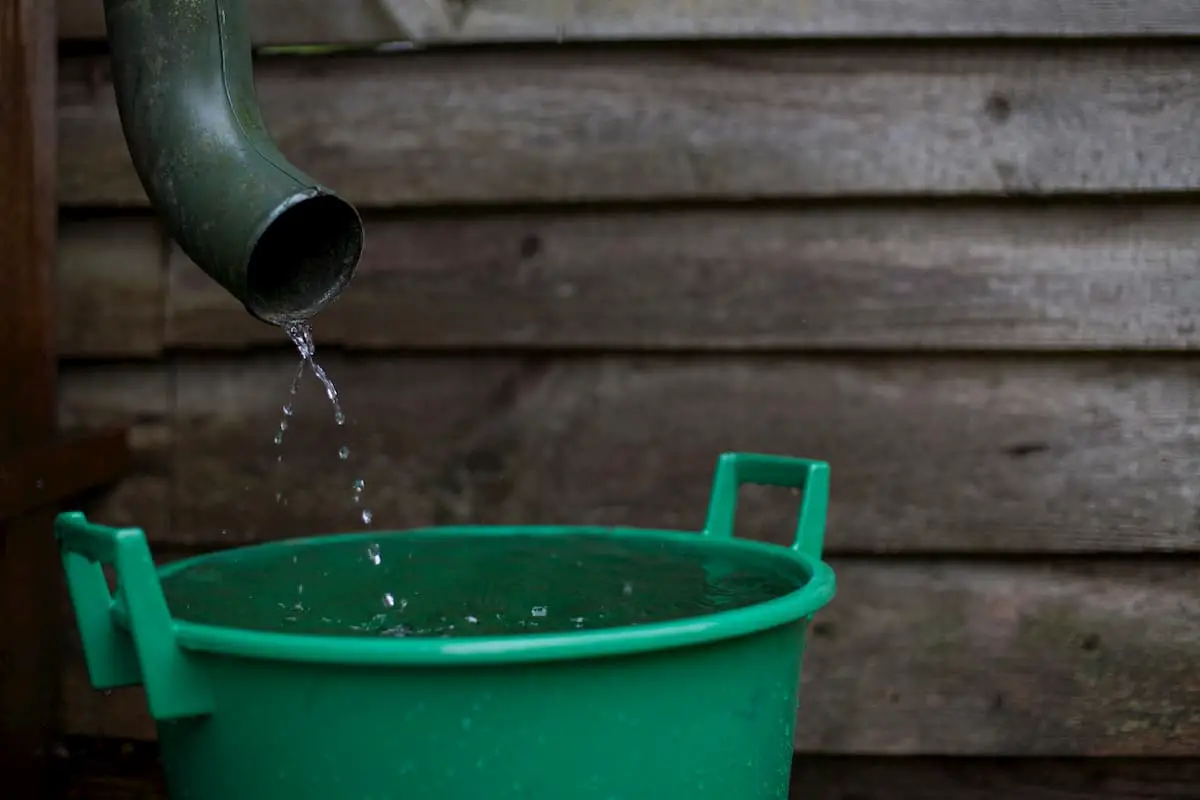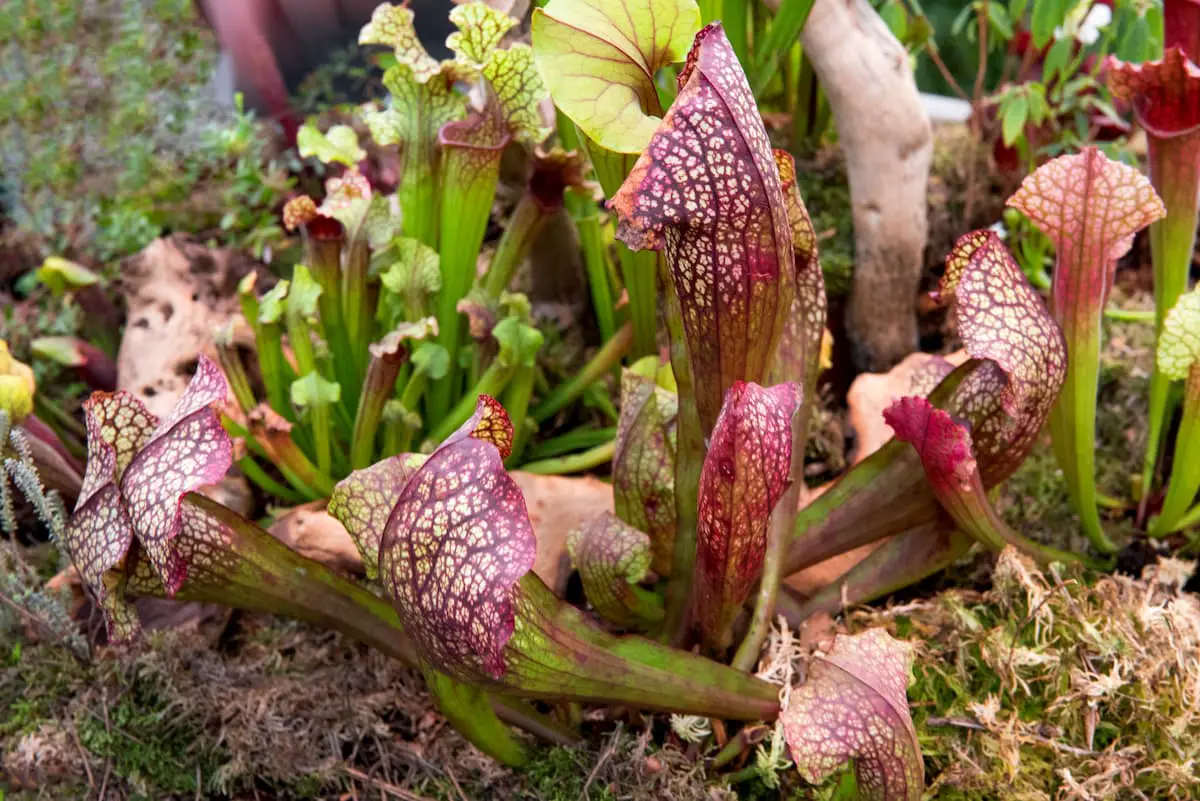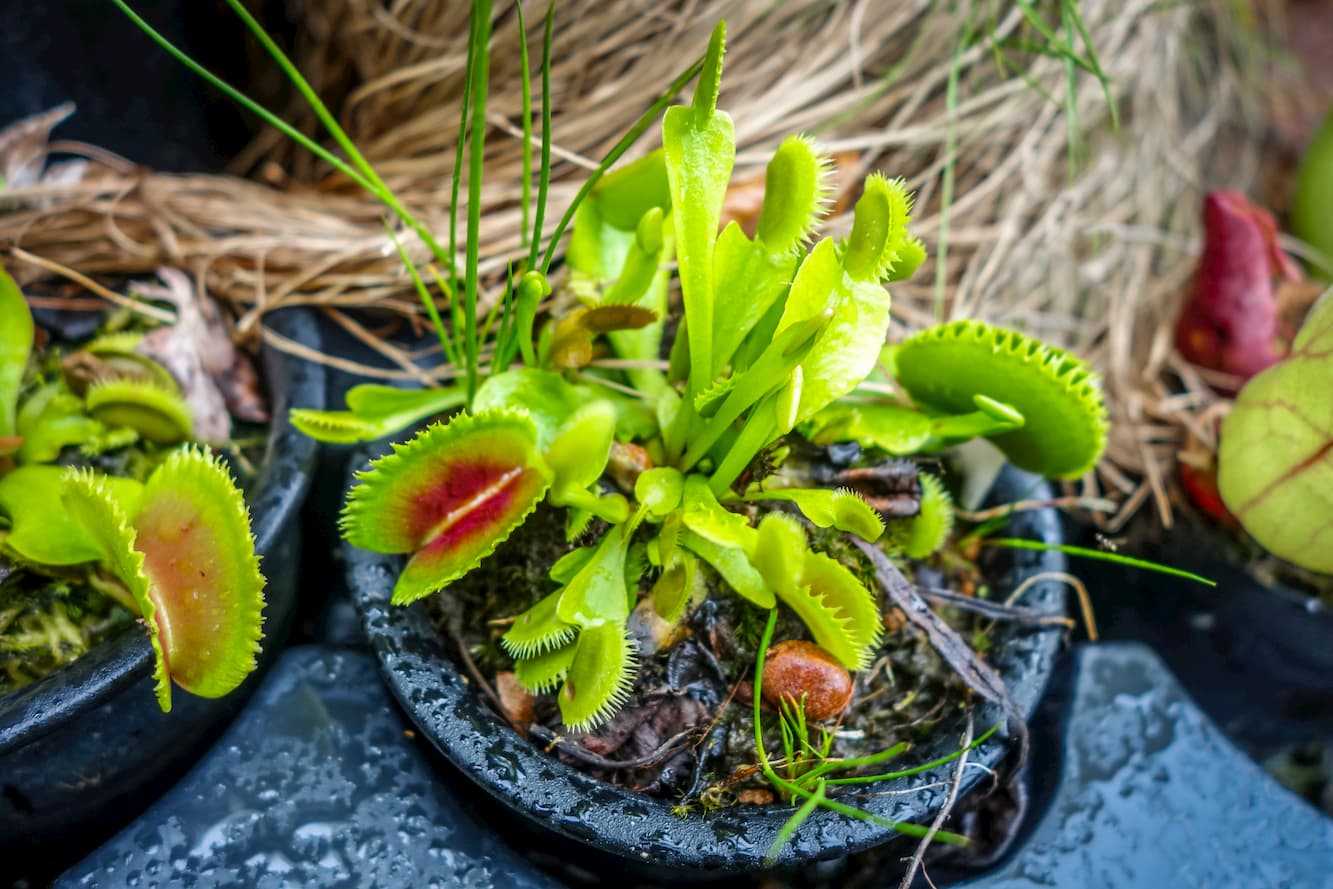Gardening is an art form and a hobby that many people partake in. There are a large amount of people that have a garden as their recreation, relaxation, or meditation area. When it is cultivated, it brings out their inner qualities of caring and giving love. Others may decide to cultivate for aesthetics or for attraction or economic purposes.
One of the most frequently asked questions when people start building a carnivorous garden is, can you use tap water for carnivorous plants?
It is fully advised to NEVER use tap water unless as a last resort. Tap water contains minerals which can “over-fertilize” or “burn” the plant. If you find yourself without then tap water can be used for a short period but you then should flush out the minerals with generous portions of rain or distilled water.
Today we are highly focused on cultivating carnivorous plants and how to best manage watering them and helping them grow. They are called carnivorous plants because they are vegetable species to grow and develop feed on insects and other unlucky smaller animals, which makes them one of the most fascinating in the plant world.
Carnivorous plants have multiple classifications, these typically will depend on their climate where they thrive which are tropical and non-tropical climate. Depending on the species and climate they come from their overall general care will change to ensure thriving.
If you’ve been asking these questions, don’t worry, today in this post we will tell you all the useful details including quite a few general tips. Take your time, read and understand everything to ensure you care for your plants properly!
General Care Needed By Carnivorous Plants
All the care of the carnivorous plants will depend to a great extent on their classification. If they are from a tropical or non-tropical climate, depending on the species, some will require a specific amount of light, some a particular temperature, and others a specific container. In general, they are resistant, long-lived, and undemanding, as long as they are supplied with the minimum required.
The minimum that they require is the following: acclimatization, light, temperature, humidity, the container that will host them, the substrate, and the type of water, we will talk about the latter.
Type of Water Required by Carnivorous Plants
Many people who start gardening use normal tap water or spigot water from outside their homes, this is the entirely incorrect way to approach carnivorous gardens and plants.
What Water To Use?
The ideal way to water carnivorous plants is to use rainwater, which is the most economical option. But you have to be careful; it is not enough to put a bucket and wait for it to fill up, you have to collect it in the right way. If you do not do it correctly, as we will indicate, you can put your plants at risk.
To collect rainwater correctly, you have to do it in containers, tanks, or carafes where the light does not enter, after filling them, since if you give them the light, this water will breed algae and bacteria that can be harmful to carnivorous plants.
The good thing about this is that there is no need to add chlorine, anti-algae, or anything else. This way, you can have pure water for your plants and totally free.
The only bad thing is that when the water we have stored is exhausted, we will not always be able to have it, because it will depend on the rainy season or when it falls.
This is where the other water comes in, such as tap water, air conditioning water, distilled water, and reverse osmosis water. Each of them has particular properties that make them useful for certain plants.
For example, you can have a container, placed just under a gutter that faces the garden so that you can collect rainwater, at any time. Place it in such a way that it can be sheltered from the sun without much effort, and because of the unevenness, it will allow you to water the garden by dripping.
The first thing you should know is that carnivorous plants, depending on their species, require water with a certain pH. If they are acidophilic, they will require water with a pH of less than six.
The second thing is that the pH of the water depends on the area where you live. So, if it is high (above 6), it will not be suitable for watering acidophilic plants. But you can use it to carnivorous water plants of another species that do not need such a low pH.
Water with a pH above six has mineral salts and other contaminants such as lead and other heavy metals, which can be toxic to plants and expose them to unwanted viruses, insects or fungi.
Besides, tap water is treated with chlorine, which in the long run, is also harmful to carnivorous plants, as it will kill the microorganisms that live in the plants and help them absorb all the nutrients.
Keep in mind that carnivorous plants are used to living in nutrient-poor soil, hence their nature to eat insects for nutrition. A word of advice uses a different kind of water.
Air Conditioning Water
The water that falls from the air conditioning is an economical way to obtain distilled water. This water can use to irrigate carnivorous plants. Remember, if you use this method, in which you will collect the water from the air conditioning, is that the container or deposit with which you collect it, you must be in a place where it does not enter the light.
Distilled Water
This is the ideal one for watering carnivorous plants. This water is demineralized and usually has a pH of around 6 and 6.5, an optimum figure for the development of our plants.
The high cost is one of the problems of using this type of water and the fact that sometimes it is difficult to get it. Carnivorous plants are used to living in nutrient-poor soil, hence their nature to eat insects for nutrition.
Reverse Osmosis Water
This water is made by reverse osmosis equipment, through which the water is decalcified-highly recommended for watering carnivorous plants. Like distilled water, it is very expensive and difficult to obtain.
Other Types of Water Economical
There are other waters suitable for spraying carnivorous plants that can be prepared at home, the so-called “modified waters”. They are prepared by placing drops of vinegar or lemon to lower the pH.
The point of attention is that they are not very treated water, so it is recommended, if it is tap water, to boil it for 15 minutes, let it rest until room temperature, and then place the drops of vinegar or lemon.
To finish, only in extreme cases, if you have a little amount of a suitable type of water, and need to irrigate a kind of plant, you can make mixtures without problems, in equal parts, for example, 50% of tap water, and the other half of distilled water.
The combination will serve us to water carnivorous plants and acidophilous plants. If the tap water portion is boiled, so much, the better. I hope I’ve helped you.
Final Thoughts on Can You Use Tap water for Carnivorous Plants
When you decide to water your plants you have more than just what you would expect within your water, much of which can cause issues with your plants due to the additional chemicals and additives.
You need to take care with your carnivorous plant or you will see it get sick and slowly pass away, many times leading to confusion of the plant owner as to how the plant could have passed.




Leave a Reply